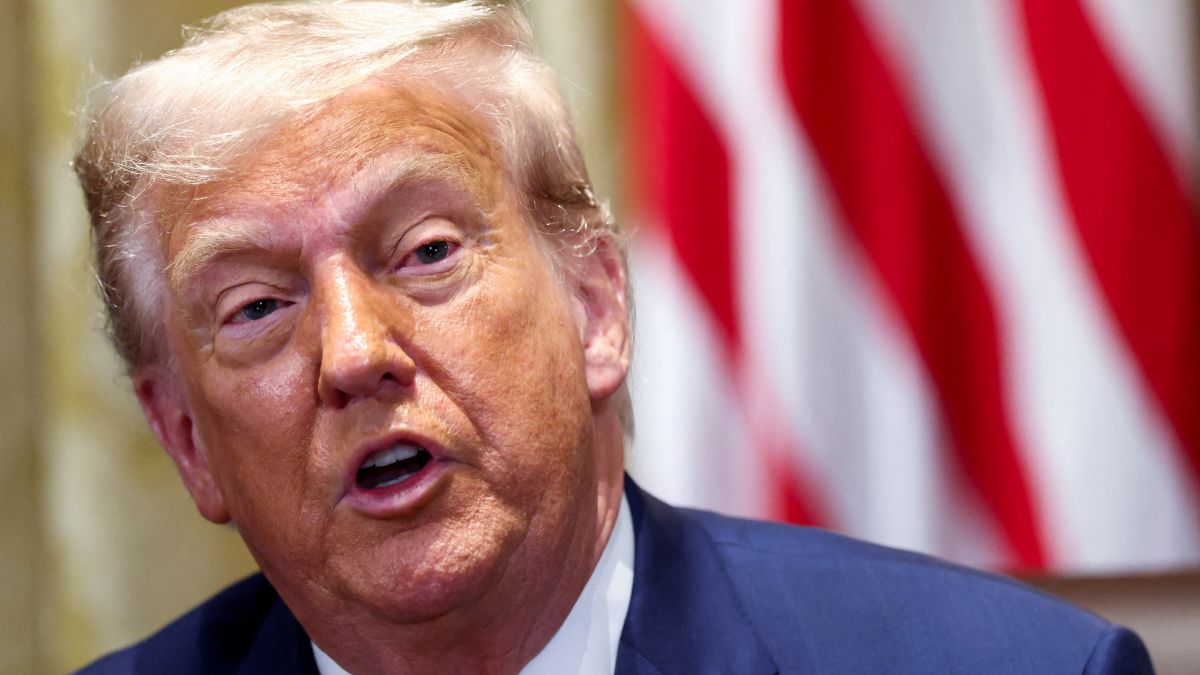In a dramatic turn of events on Capitol Hill, President Donald Trump reportedly brokered a last-minute deal with hardline House Republicans late Tuesday, clearing a procedural roadblock that had earlier derailed the scheduled legislative push for three major cryptocurrency bills and the Genius Act.
The intervention, which unfolded during a private meeting in the Oval Office and included a phone-in appearance by House Speaker Mike Johnson, appeared to unify a divided GOP caucus ahead of a crucial vote.
Crypto week almost derailed
The week had been touted by GOP leadership as “Crypto Week,” a symbolic effort to highlight the party’s commitment to digital asset regulation. However, internal divisions flared when a bloc of 13 Republicans sided with Democrats to vote down the procedural rule needed to advance the legislation.
As reported by The Hill, the opposition included prominent figures such as Reps. Chip Roy, Marjorie Taylor Greene and Andy Biggs, among others. Their chief concern centred on the absence of language in the Genius Act prohibiting the creation of a central bank digital currency (CBDC), a sticking point that has become emblematic of broader GOP mistrust of centralised financial oversight.
The Genius Act, which aims to establish a federal framework for stablecoins — digital tokens pegged to the US dollar — had already passed the Senate, making it the most viable piece of crypto legislation currently in motion. Yet its path in the House was blocked when dissident Republicans argued that it did not go far enough to rein in federal authority over digital finance.
Trump steps in
Trump’s decision to engage directly with the rebellious lawmakers signalled the high stakes of the moment. In a post on Truth Social, he claimed that after a brief meeting with 11 of the 12 holdout Republicans, all had agreed to support the procedural rule required to advance the bills. The president said Speaker Johnson had participated via phone and that the vote would be held Wednesday morning.
While Trump did not specify what, if any, concessions were made to secure this agreement, the statement appeared to quell the immediate legislative crisis. Speaker Johnson has confirmed the arrangement, expressing gratitude for Trump’s intervention, calling it crucial in getting the chamber back on track. Johnson also pledged that the House would continue pushing forward on additional cryptocurrency legislation.
Impact Shorts
More ShortsLegislative package under review
The agreement clears the way for the House to consider not only the Genius Act but also two other key crypto bills — the Digital Asset Market Structure Bill and the Anti-CBDC Surveillance State Act. The former seeks to delineate regulatory responsibilities between the Securities and Exchange Commission (SEC) and the Commodity Futures Trading Commission (CFTC), clarifying jurisdiction over digital assets. The latter is a symbolic rejection of a government-issued digital currency reflecting conservative fears about state overreach in personal financial data.
The procedural impasse stemmed partly from demands by some GOP lawmakers to bundle all three bills into a single package. Speaker Johnson explained that such a move would require re-approval by the Senate, potentially delaying the process indefinitely. The Senate has so far only passed the Genius Act after months of deliberation.
Tactical or strategic?
The unusual move to block a rules vote — a typically pro forma step in the House — represented both a tactical manoeuvre and a broader ideological statement by GOP hardliners. By disrupting floor proceedings, they sought to signal dissatisfaction with leadership and the perceived softness of the legislation, especially regarding federal surveillance potential in a digital currency future.
Votes on procedural rules are usually routine, divided along party lines. However, the House Republican majority has increasingly seen internal factions use these votes to assert influence or air grievances. Majority Leader Steve Scalise notably changed his vote to “no” as a procedural manoeuvre allowing the issue to be revisited — an indication that leadership was anticipating a second attempt.
A crypto ally in Trump
Trump’s growing alignment with the cryptocurrency industry has been one of the notable developments of his second term as president. He has repeatedly voiced support for a “clean” stablecoin bill and has cautioned against entangling it with other measures or regulatory additions. His endorsement appears to carry significant weight among House Republicans, many of whom are treading through a new territory in the rapidly evolving digital finance space.
His position stands in contrast to more cautious lawmakers who prefer comprehensive regulation that addresses both investor protection and federal control. Nonetheless, Trump’s decisive involvement in this legislative episode suggests he is positioning himself as a champion of crypto innovation, an emerging issue with increasing political resonance.
What comes next
If the agreement holds, the House is expected to vote on the procedural rule and begin debate on the three bills as early as Wednesday, potentially delivering a significant win for the crypto sector. However, the final passage remains uncertain, especially as the Senate has shown limited enthusiasm for comprehensive crypto legislation beyond the stablecoin framework.
Still, Tuesday’s episode reflected the unpredictable dynamics of GOP politics in the post-Trump era. Trump’s intervention appears to have not only salvaged the day’s legislative agenda but also reaffirmed his role as a central figure in shaping the party’s policy direction, even on complex issues like digital finance.


)

)
)
)
)
)
)
)
)



